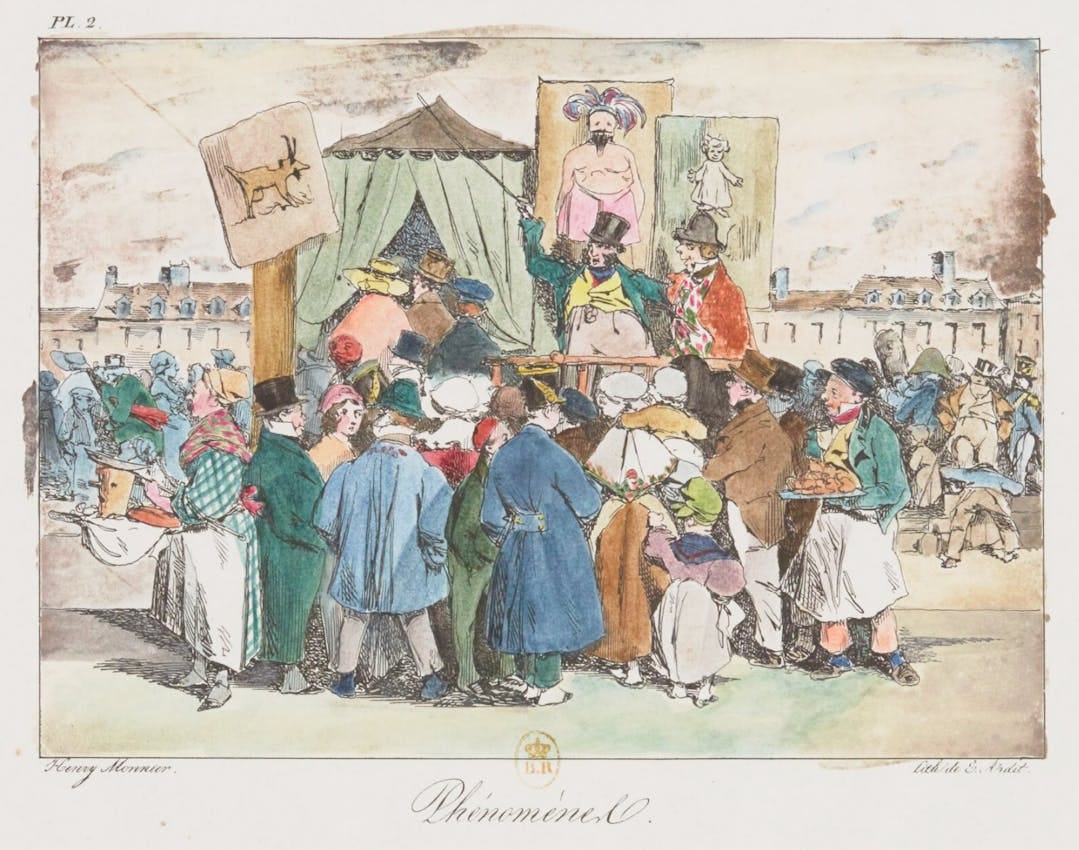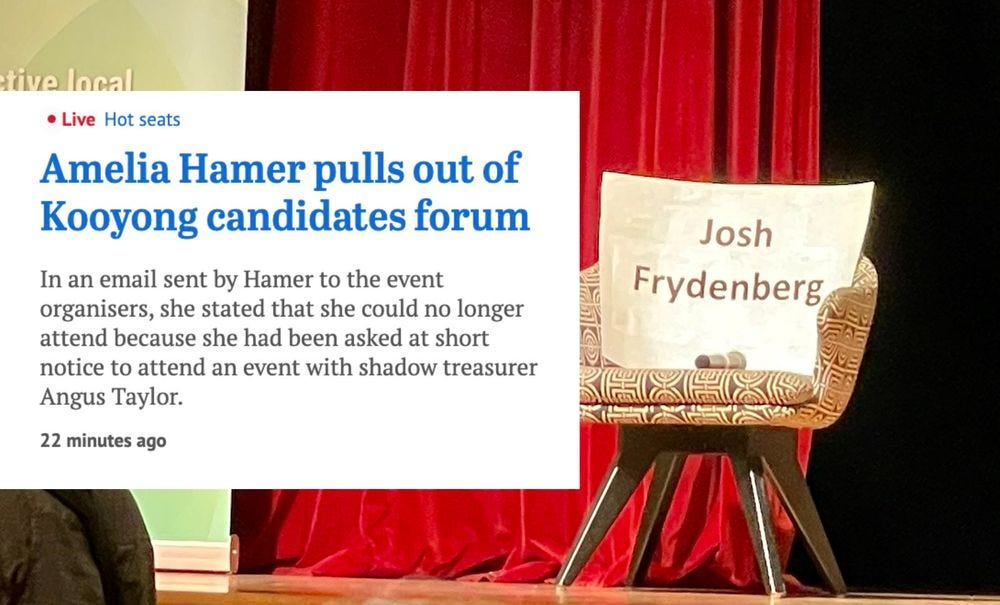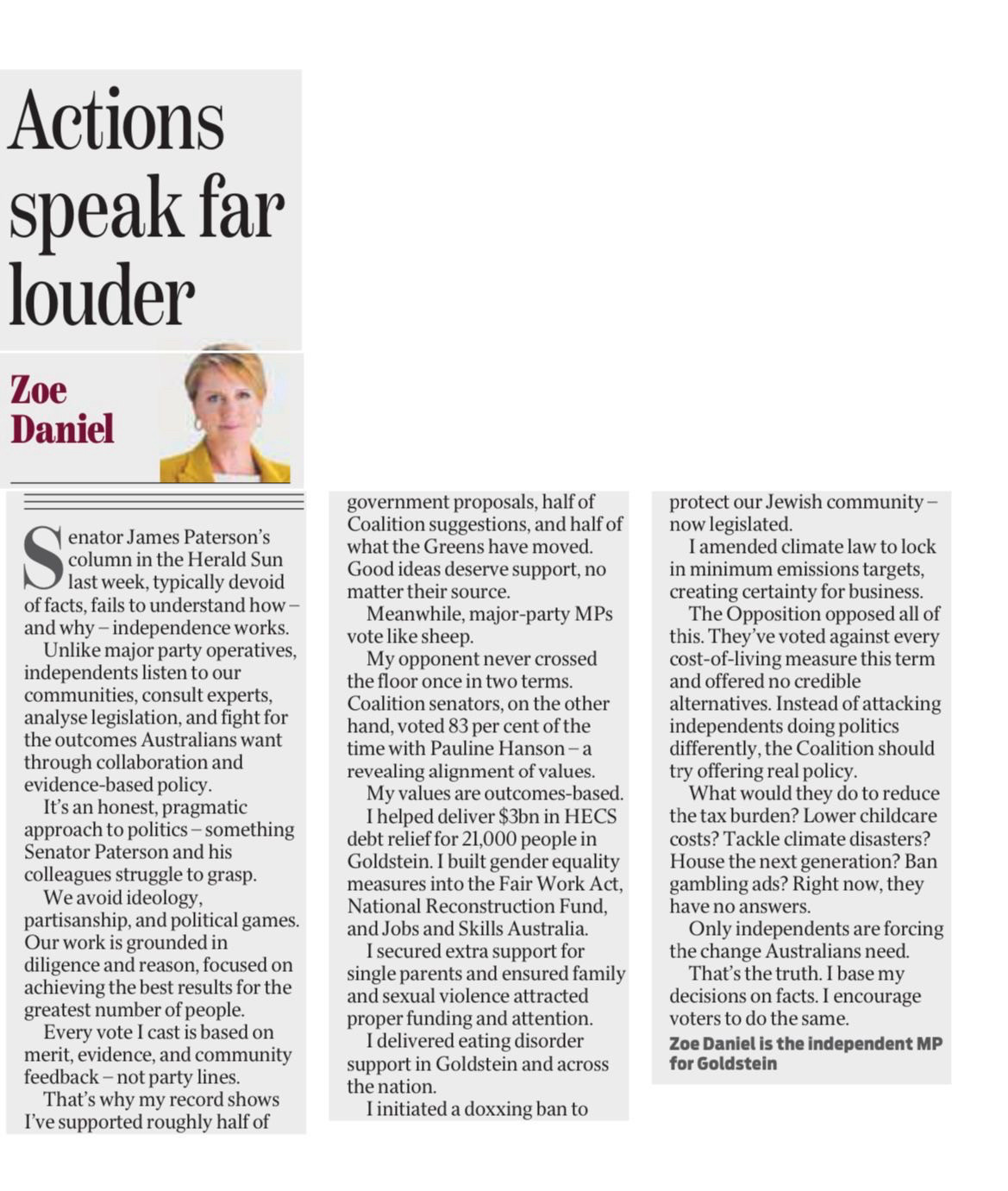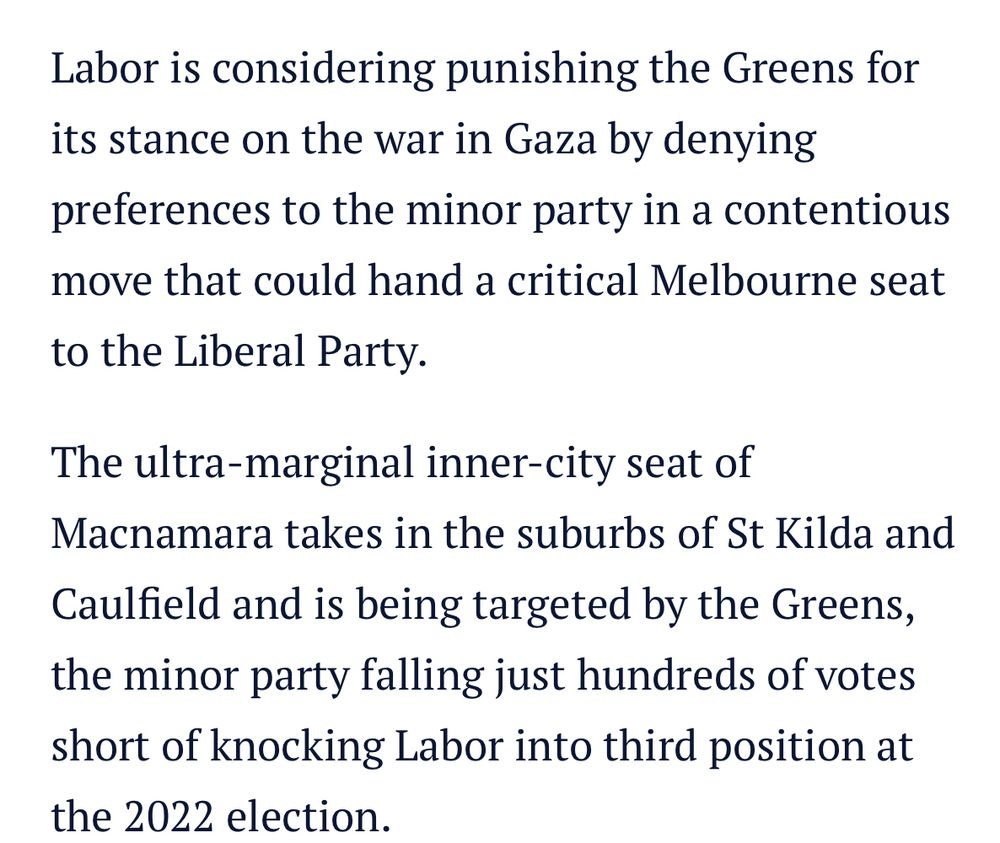The fearful symmetry of a failing system
What the election campaign is telling us about the underlying weakness of the two-party process
Hello, hello, I thought you were dead
They say it was far too much boozing
Though you inhale
Your complexion is pale
And the eyes in your head are not moving
—Hudson/Ford
The very idea of a political party—of major political parties, la de da—is no longer compelling in Australia. It is an idea whose time has passed. They will never disappear completely, and nor should they, but they can no longer be central to our politics in the way they once were.

The “major” parties lack a meaningful material base and, at the moment, exist only on the fumes breathed into them by other institutions that still have some power but are equally bereft of popular support, the media, the business class, the bureaucracies of state and nation.
Labor and the LNP are niche products who still think of themselves as mass market.1

Of this fact, there is little discussion amongst Australia’s leaders—about this hollowing out—of how the major parties are nothing much more than ill-fitting suits established actors pull on every few years to parade around in. Given that a significant section of the country’s ruling class depends on this pantomime, that’s not surprising. But without that self-interested inertia, the show would’ve moved on years ago.
In fact, the audience already has moved on. A diminishing number of voters still cast their votes for the old timers, and increasingly, people are happy to vote for someone else if a viable alternative presents itself.
The demise of parties doesn’t quite seem real yet because not only have our brains been trained across our whole lives to accept—even prioritise—these entities, the entire institutional infrastructure of our society has been built to support and enhance the two-party system they represent. The actors stumble around, but they do so on a stage constructed over decades to show them in their best light.
For change to really bite, we don’t just need to replace the actors on the stage, we need to rebuild the stage on which they act. This will be the role of whatever minority government eventually emerges and it will take more than a single term. For now, we live in a time of zombies.
Just look at the election campaign being inflicted on us at the moment.
Nearly all the reporting is framed from the top down, as if our only choice is still between Labor and the LNP. The possibility of a minority government is canvassed, more so than ever before, but it is presented as an aberration, something that might happen accidentally and that will ultimately be managed by either Prime Minister Dutton or Prime Minister Albanese.
As if they are the only “grown-ups” in the room.
Rarely is there any discussion of the new sort of deliberative governance that would be possible if we stopped trying to push everything through the two-party sieve.
The absolute clown show the Liberal Party has been performing since the election was called, with Pagliacci Dutton leading the way, might be making Albanese’s measured mediocrity look good, but neither the PM nor the alternative is connecting with voters. Let alone inspiring them. Let alone convincing them that a better world is possible.
Party preselection processes are so broken, particularly on the Liberal side, that the party can’t attract talent and we are left with the second-rate units currently galumphing around the country variously parroting Trump, assuring us they aren’t parroting Trump, or agreeing with Labor on things they don’t agree with in order not to be “wedged”.
Any potential candidate with an ounce of integrity, let alone nous, is much better off running as an independent, and by gum, they are. This is true of the Liberals now and will be increasingly true of Labor.
But few in the conservative political class bat an eyelid. They double down, pushing the party farther to the right, substituting outrage for values.
The various directors and stage managers of the great artifice of the election carnival are too heavily indebted to the status quo to dare challenge it. Or even acknowledge its problems. The Upton Sinclair quote is a bit of a cliché at this stage but fuck me: “It is difficult to get a man to understand something, when his salary depends on his not understanding it.”
These inkblot parties, squashed together between the pages of a book nobody reads anymore, take on more similarities by the day, developing a grotesque symmetry. It is part of a larger process.
Parties around the world have emptied out, a secular kenosis of Biblical proportions. They have been captured—refilled—by vested interests and nowhere is that more apparent than in the US, where the Republicans have sold out to fascist authoritarianism, and the Democrats have detached from any working-class foundation and float freely in an ether of gesture.
In America, the nature of the republican system has made it impossible for them to find an alternative to the party system, as Chris Maisano recently argued:
If anything, the two-party system has only become more entrenched since the 1890s. Since then, there has been a general increase in ballot restrictions on minor parties, and the spread of direct primary elections at all levels has given electoral insurgents an easier path to winning elections than challenging the two major parties in general elections.
In their recent book, The Hollow Parties, Daniel Schlozman and Sam Rosenfeld give a great historical overview of what has gone wrong in the US2, but the authors remain convinced that there is no real alternative to politics being run by parties, and it is interesting to hear the strongest possible case being argued:
Hollowness matters because parties matter. When vigorous and civically rooted parties link the governed with their government while schooling citizens in the unending give-and-take of political engagement, they give legitimacy to democratic rule. They bring blocs of voters together under a common banner, negotiating priorities among competing interests to construct agendas that resonate in the electorate. They render politics into ordered conflict, playing by the electoral rules of the game and gatekeeping against forces that might undermine such shared commitments. In each of these roles, competing parties at their best serve as stewards of democratic alternatives. When they falter, so does the political system.
Well, maybe not so much.
I don’t think this is true in Australia anymore, and surely one of the big problems our parties have is that they remain in thrall to American politics, even as it descends into fascism. And it is hardly a wonder: America has been a cornerstone for the Australian political class for generations, almost as integral as our own two-party system. It is part of the elite echo chamber.
But we are well past the point where we should look to America as any sort of model of democracy.
Australia’s major political parties are failing to govern in any meaningful sense. In any democratic sense. Their role has become little more than to manage the interests of competing elites, foreign and local. Communities are ignored, party matters take precedence over local issues, and the worst thing that can happen to you electorally is to live in a safe seat because that means you will be marooned. No pork barrelling for you. No community consultation. Just the guarantee that your rusted-on vote will ensure that you will be thrust into the too-easy basket.
The factions that rule both Labor and the LNP no longer connect with ordinary voters. Except for a sliver of the elite, the whole country is the forgotten people. As former Liberal minister, Ian McPhee, wrote recently, “The Faceless Men in the Liberal Party in Victoria reduced the interest of constituents in joining Liberal Party branches and hence they could have supporters in those branches who could preselect candidates of which the Faceless Men approved. Similar problems arose in other states and the Liberal Party lost the trust of the majority of Australians.”
Or as another former Liberal minister, Fred Cheney, wrote back in 2022, “[T]he party I served has lost its way. Members are no longer able to successfully execute what the electorate demands and it is now in the sad position of being held hostage by its extremes and those of its Coalition partner.”
And I have previously mentioned Andrew Leigh’s excoriation of Labor’s factions and how they are killing party democracy.
I mean, why would anyone in Kooyong, for instance, vote for the new, inexperienced Liberal candidate on offer, who, if she wins, will go straight to the backbench to make up the party numbers in parliament—bereft of individual choice on anything that matters to her community—when they could vote for an independent who will likely be on a crossbench that is part of a minority government?
What does party politics bring to that table?
The Liberal candidate for Kooyong, Amelia Hamer, didn’t even show up at a recent public meeting attended by all other candidates. The reason? She had been ordered to attend a party event instead.
How much more obvious can the disconnect be?
The independents are succeeding because people can see that electing them is a better way to have their voices heard. The argument put forward below by Zoe Daniels, the independent member for Goldstein, is compelling because it is absolutely true.
Or as I wrote in Voices of Us in 2022:
The independents elected in 2022 come to the parliament without the vested interests of the insiders they sit beside, the members of the parties who trace a career path from student politics through jobs as staffers to ministers and shadow ministers, and into parliament via safe seats that all but guarantee them a level of employment security most people under 40 can no longer rely on – thanks to political decisions taken by people like them – and then onto the Elysian Fields of the lobbying landscape in the political afterlife. The contrast with the independents could not be starker. They come to parliament not on the back of loyalty to a party, but loyalty to a community. They aren’t relying on politics to provide their life with its whole meaning, let alone their entire career. They can come in, set some goals, do some good, and then go back to the legal firm or the doctor’s surgery. It is a politics that is contingent but focused.
Is this good for democracy?
Undoubtedly. It ruptures the structures in which complacency and corruption grow. It undermines the cosy habits of the status quo. It reminds the establishment that governing legitimacy comes from the demos, the people, not the elites. It echoes the essence of self-rule the Greeks were trying to achieve though sortition and democracy itself. It is a landmine under the oligarchical mindset that is the inevitable endpoint of two-party politics. The logic of this formation flies in the face of party logic and heralds a new sort of practical, ends-focused politics. It doesn’t describe the entire body of citizens, but it does characterise a significant, central section of it. It is a statistical centre, too, not an ideological one, and 2022 was the first time ever this middle got above 30 per cent of the national vote…..
Perhaps we have become a more individualistic society [but organisatons] like the Voices Of movement reflect a new point of balance between individual needs and the needs of community. …We are normalising the idea that the crossbench should play a more prominent role.
Voices of us: The independents' movement transforming Australian democracy (pp. 206-208).
The success of independents in the last election is still presented as a protest against Scott Morrison rather than as a positive embrace of an alternative politics, but the appeal is pretty straightforward when you think about it for two minutes.3 The Voices Of process unearths candidates who don’t hold voters in contempt and who are actually trying to solve problems rather than score points or protect a sinecure.
The business-as-usual arrogance that pervades the major parties is palpable. And laughable.
Honestly, every time Anthony Albanese expresses his contempt for the Greens he wounds and insults a significant section of the people who keep him in office, people who vote 1 and 2—or 2 and 1—for Labor and the Greens. How out of touch do you have to be to make that a defining quality of your political persona? The man whose party can barely muster a third of the primary vote, who is totally dependent on Greens’ preferences to keep him in office, proudly stands before the people and tells them he won’t “do deals” with a party many of them preference. Prefer.
“I make this point, as I’ve made it again because there was some reporting of something, in spite of the 385 times that I’ve said we will not govern in coalition with anyone including the Greens,” the PM said.
“I rule out, I rule out, just to be really clear again: If you ask me, ‘do you rule out governing in coalition with the Greens’, the answer to that is no, no, is no — I don’t negotiate with the Greens…”4
I mean, for god’s sake. Who do you think you are? Who do you think you are speaking to?5
But let’s not miss the main point here: if the two-party system had any underlying strength, the leaders wouldn’t have to field these questions. The fact that Albanese is forced into this constant reiteration of his anti-Green warrior status merely underlines the reality that is contemporary Australian politics, that the “major” parties are husks, and that our politics stands on the verge of major transformation if only we would take the next step.
A bit like newspapers, terrestrial TV, and radio.
For an account of what has happened in Britain and Europe, see Ruling the Void: The Hollowing of Western Democracy by Peter Mair.
But thinking is hard and two minutes is a long time, as Bertrand Russell once noted (allegedly).
And you just watch how much of a weasel word “coalition” will turn out to be if he actually does fail to win a majority.







Bravo TD, your views mirror my utter, utter contempt for the 2party duopoly system (though my contempt comes with many more 'f' expletives especially when I see the usual substandard ABC/ MSM coverage of the election campaign). It's the galling way that the people at the top of these giant pyramid selling scam/cults treat ordinary people with total disdain and how this extends to their support mechanisms - the enthralled MSM, the big corporate donors, faceless party king makers/breakers & faction leaders. How anybody sincerely interested in doing what's best for a nation could join the duopoly & become a career politican is beyond comprehension for me. If anyone know of some good accounts of career politicians who've gone down that path & now regret their decision (TD mentions a few above) please let me know.
It is strange that the old parties don't realise that their inaction and collusions have contributed to the emergence of independents. It's bizarre that they choose to bag independents rather than look inward to see how they could change 'structures'(?), be more appealing to a wider membership and enable that membership to make suggestions which could be taken on board rather than sending them to Siberia for saying something which goes against tradition.
How does this government make change, anyway? For some reason, Albanese, during the last election campaign, promised that he would go ahead with the LNP devised Stage 3 tax cuts which
would have made the obscenely wealthy, more grotesquely so. So many people protested against this - to their local MPs and higher up. But at what point do you get a rethink? Two million emails expressing disapproval? Less than that? ~ Nah.
I am really jaded. While I find politics interesting, it feels like an election campaign has been happening since towards the end of last year. But since the election date is decided at whim, there's always a cloud of speculation as to when it will happen. And it's the blah of the older parties which gets reported.